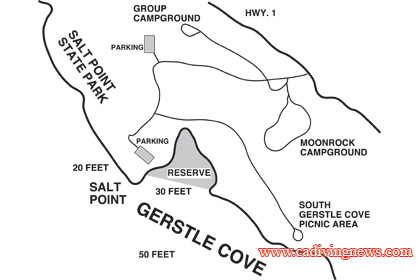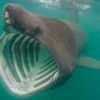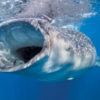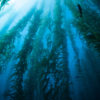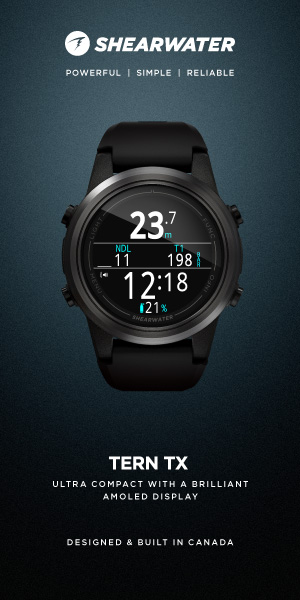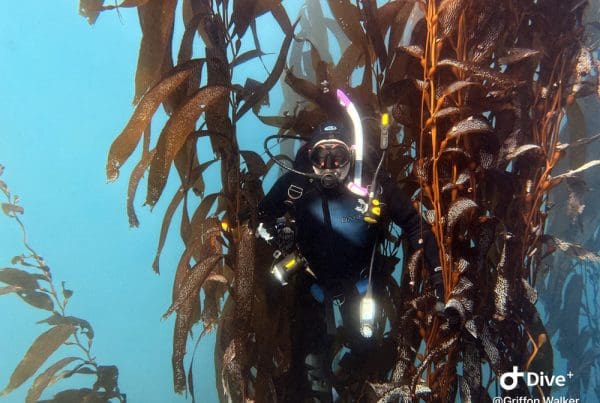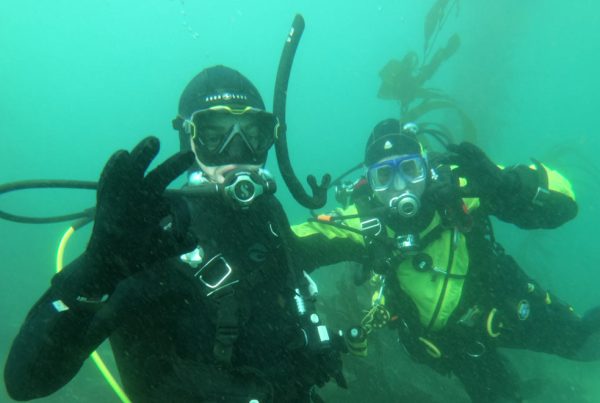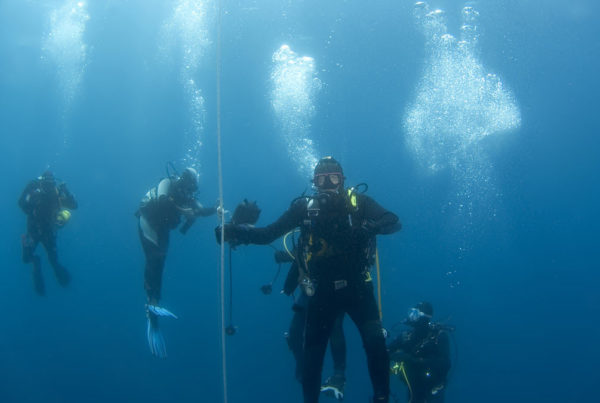During a day of diving two, three, or even four dives, you still will spend a great deal of time on the deck of a boat waiting for an air fill, a boat move, or just trying to get in a decent surface interval. How you spend that time can impact the enjoyment of your dive trip. Below are a few key things you can do to make your dive trip more productive, comfortable and enjoyable, even during those times not in the water.
GET WARM
Getting warm almost always equates with getting and staying dry. Evaporation is your worst enemy to staying warm on the surface. This is true in a dry suit and especially in a wetsuit. Often it is not practical to peel off your exposure suit, but you can reduce the evaporation cooling effect with an oversized jacket.
Your head is especially vulnerable. A jacket with a fleece-lined hood can be especially comfortable, but a warm hat or beanie will work almost as well.
A warm fluid like soup, tea or coffee will help a little but is often overrated. The effect of a hot drink does not warm you as much as you might think. And some fluids such as coffee will make your need to urinate more.
And finally, get out of the wind. The chilling effect of evaporation is often tripled by even just a moderate breeze.
HYDRATE
A key to well being on a dive trip is hydration. A well-hydrated body will better fend off the bends as well as seasickness. But you must hydrate properly. First, hydrate with water, not soda, coffee, tea or juice. Second, don’t gulp water but sip it. Too much water in your stomach will slosh around making the possibility of seasickness greater. Be aware also that too much water, like coffee, increases your need to urinate.
COMMUNICATE WITH YOUR BUDDY AND FELLOW DIVERS
Discuss with your buddy what went right and what went wrong on the last dive. Maybe they saw something you missed but could not communicate with you on the dive. Discuss equipment problems that perhaps could be fixed before the next dive, or at least an awareness will make the dive safer.
Share experiences with your fellow divers on the boat. It is remarkable what a buddy team will see on a dive in one area and the other team will completely miss. You can share equipment pluses and minuses and perhaps come up with some solutions to your nagging problems in dive techniques. You can also mentor less experienced divers on how they can better enjoy their underwater experiences.
And besides, diving is a social activity! Get to know your fellow divers and you could make a new buddy, friend or even romantic interest.
CREATE LOG BOOK ENTRIES
Logbook entries are best done when the dive is still fresh in your mind. Note marine life seen, depths, times, profiles, buddy and gear used and how the gear worked out and improvements needed. Logging your dives right away will allow you better recall on the location name and to access your computer numbers more readily.
FISH I.D.
One of the most enjoyable things to do diving is to identify fish and other marine critters. Pull out that marine life guide and get after it while the memory is still fresh. And, as mentioned above, you may want to record your sightings in your logbook. Take it to the next step by also noting behaviors observed.
USE THE RESTROOM
Even if you don’t feel the need, go potty. Stop urinating in your wetsuit! It is a bad habit that makes your wetsuit stink.
CAMERA AND GEAR UPDATE
You know those nuisances that bothered you on the last dive? Fix them between dives. Secure that strap that keeps snagging on the kelp. Put some silicone on your mustache to prevent that annoying mask leak. Defog that mask one more time with extra care. Replace the batteries on your camera. There seems to be always something you can adjust to make your next dive more enjoyable.
EAT, BUT EAT RIGHT
Diving, especially chilly water diving, consumes a lot of calories and blood sugar. You’ll want to replenish it for physical strength, endurance and mental sharpness. Get good stuff into your body like fruit, soup and some protein. Complex carbs are good, too. Just eat healthy but do not eat too much. Also avoid greasy or spicy foods. Not only will these make you more vulnerable to seasickness, they can also come back to haunt you while you are underwater — not a pleasant feeling at all.
PLAN YOUR NEXT DIVE
Having a dive plan is essential not only to an enjoyable dive but also safety. Scroll through the dive plan mode on your computer and see just how much time you’ll have at what depth. Check each other’s computer to see if they match and if not go with the more conservative of the two in your planning. Agree with your buddy on maximum time and depth. If already on site for the next dive decide on a direction and profile, listen to the divemaster and polish your plan. Get your gear squared away and you are off on your next underwater adventure!

